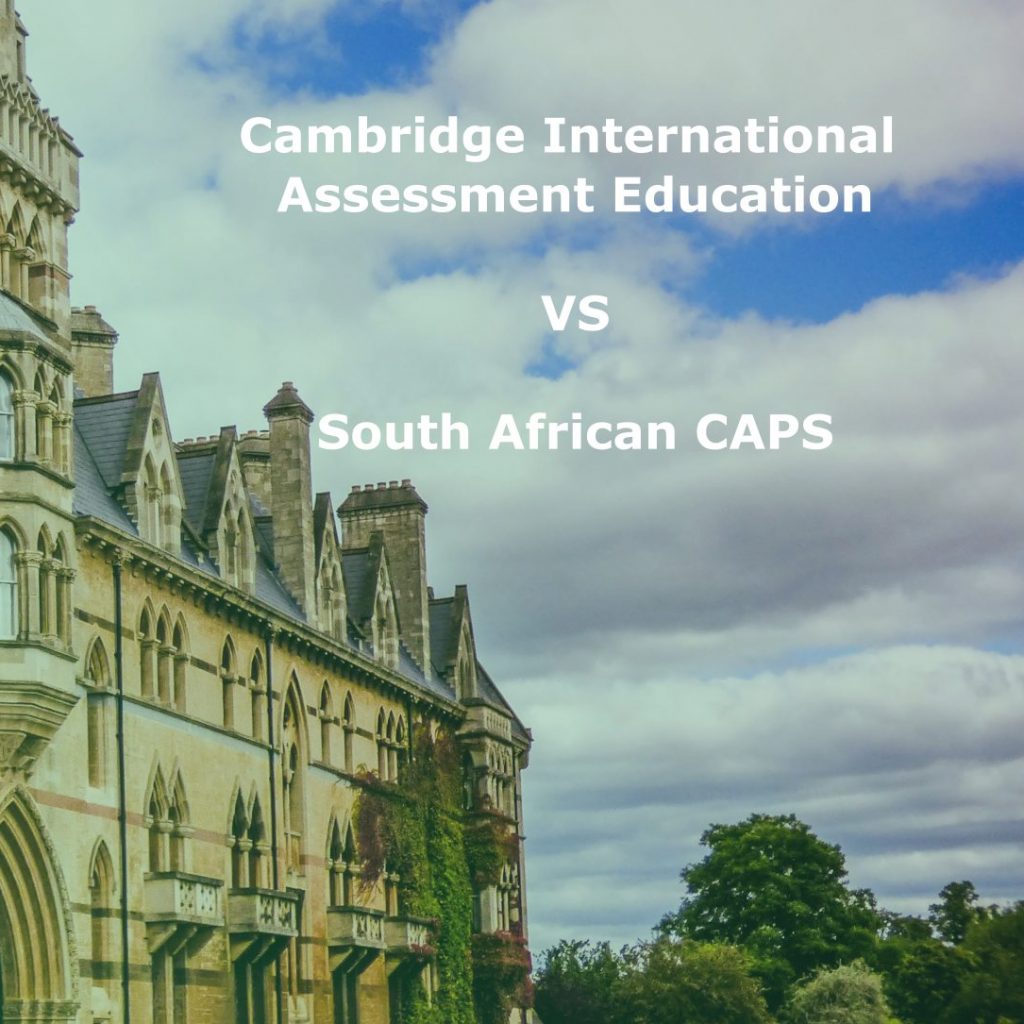The main reason for using Cambridge is that it is flexible. One does not need prior school reports or proof of work over years to write the Cambridge exams. Exams can also be written over several sittings. Cambridge is also recognised by South African universities.
A rough equivalence of Cambridge Exam levels vs South African grades
- IGCSE (or O-levels): Grade 11
- AS (or half A-levels): Grade 12
- AL (or A-levels): Grade 12+1

As seen in these equivalences, there are many possibilities when choosing Cambridge International Assessment Education as a preferred curriculum to follow. It can get a little tricky to figure out all the kinks but in short:
Your Options
Students need to pass 5 subjects;
- Most Common Option: 4 AS Level subjects and 1 IGCSE subject. English at the AS level is compulsory for this option.
- Option 2: 2 A level subjects and 3 IGCSE subjects.
- Option 3: 3 A level subjects and 1 IGCSE subject.
With these options come certain requirements for subjects chosen, such as having a first and second language completed. A short breakdown looks like this:
| 1st subject | A First language is compulsory e.g. English |
| 2nd subject | A second language is also compulsory e.g. Afrikaans |
| 3rd subject | A third language, Maths or a Science subject |
| 4th and 5th subjects | The two remaining subjects can be taken from any of the groups e.g. History, Geography, Accounting Business, etc. |
To get the full listing of subjects and their requirements you can visit Cambridge International or take a look at this helpful University recognition in South Africa breakdown.

Minimum marks for each level is also set
| Subject level | Symbol | Percentage |
|---|---|---|
| A | E | 40% |
| AS | D | 50% |
| IGCSE | C | 60% |
The above subjects must be written in a maximum of two calendar years, called the “two-sitting rule”. Mid-year and end-of-year exams are available. This means that exams can be written over 4 sittings in two calendar years.
Afrikaans can be written in October of the year before two calendar years kick in, with its result combined with the results of the May/June exams of the first calendar year. This means a 5th exam sitting is allowed for Afrikaans.
Converting AS to A levels
A-Level exams are to be written within 13 months of the AS level exams. A student has a maximum of two attempts to convert an AS level result towards an A level result.
University Acceptance
University Faculties will in addition set their own entry requirements over and above these requirements as outlined in the previously mentioned University recognition in South Africa breakdown.



